By Toyin Falola
After three years and several attempts by Dr. Usman Isah Ya’u to invite me to give the Abdullahi Mahadi Annual Memorial Lecture, it will finally happen at Gomber State University on December 10, 2024. “The Tall Man,” I used to call Mahadi. I would add, playfully, “Dongoyaro” to remark on his slenderness. He would laugh and produce the medicine and magic in Maina. He could adjust his facial expressions according to the business of the day. When it was time to laugh, it would be loud. He was strong, always cheerful, a builder, solid as the rock. We interacted for decades.
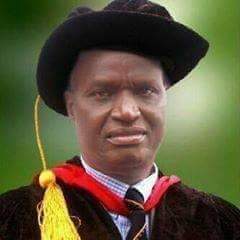
We co-edited three books on the history of West Africa for Longman in the 1980s. I was the External Examiner at Ahmadu Bello University under his leadership as Head of the Department of History. He hosted me as the Speaker for the K. O. Dike Memorial Lecture when he was the pioneer Vice Chancellor at Gombe State University. We met countless times in the 1980s and 1990s. His demise was a significant loss to his family and the country. As a young lecturer in the 1980s, no one knew then that he would become one of the country’s longest-serving Vice-Chancellors in three universities. What they saw in Mahadi—leadership qualities—will be the subject of my lecture on December 20. In this piece, I want to re-introduce him to the Nigerian public.
Nigeria remains one of the most resourceful places on earth, not only because it has a large deposit of natural resources that can ultimately transform its environment but also because it is blessed with a large concentration of people with quality intellect. Professor Abdullahi Mahadi is one such intellectual resource who dictated the tune of progressive engagements that increased Nigeria’s potential. For one, he was well-informed and disposed to quality interaction to the extent that he invested in training successive generations of undergraduate and graduate students for five decades.
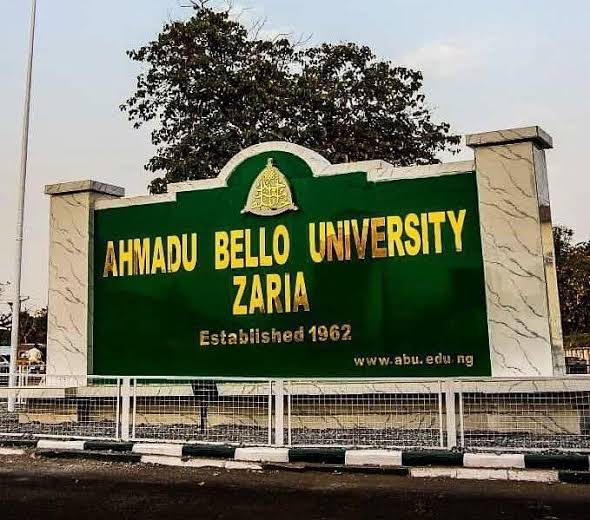
His commitment to anything promoting positive development underscored his determination to do things right. Professor Mahadi was one of the most significant Nigerian scholars, and he demonstrated that his commitment to the enthronement of a vibrant academic culture could not be compromised. His contributions to teaching were stellar. His exemplary input was illustrated in the number of young lives he developed. He contributed immensely to raising individuals by inputting the proper education into them and seeing that they were guided where necessary to make the right decisions and take the needed steps to support themselves and advance our collective aspirations as a country.
One of the most important things to know about him is that his intellectual engagements necessitated, among other things, the expansion of our knowledge about specific things to be revealed here. In one instance of his intellectual engagements, he said that humans are themselves the architects of bad encounters they had in their environment and that irrespective of how sturdy a system or an institution is, when many shortsighted individuals assume power, they compromise the system, crumble it, and drive inefficiency to greater heights. To that extent, he once said that humans are in the habit of hiding their destructive nature behind a system otherwise developed to serve the people or represent the masses. In one instance, Professor Mahadi stated how people employed religious and political institutions to carry out their nefarious activities. His intervention was revealed after a careful study of the systemic growth of Islam in many parts of the world, specifically the northern part of Nigeria. He noted that people often hide their dangerous or unpredictable convictions under religious beliefs because it appears that they somehow have some reverence for religion. Some individuals, therefore, take advantage of religion to perpetuate evil. They hide under religious beliefs to get their motivations, persuasion, and conviction to carry out evil acts.
Mahadi insisted that the proliferation of violence anywhere in the world generally, and specifically among leaders of religion who command a large followership, is the result of the provincial inclinations of some of these individuals in powerful places. He mentioned that when you see conflicts gaining traction and violence becomes the order of the day, it probably has a hidden foundation. He conceded, for example, that the countless cases of religious violence were incubated not primarily by the teachings of a particular religion but by greedy and ruthless individuals who preyed on the innocence of others to perpetuate conflicts for selfish gains. This, therefore, shows that the power of interpretation and the politics of human control often influence how people imagine things. For illustration, it is purely an act of parochial intentions to teach an otherwise calm or unassuming population that they would have to put others in harm’s way so that they could get the attention of God or be rewarded for the expansion of their religion. He insisted that such divisive teachings control people’s minds for something they may not immediately understand, such as their connections with their problems. It is, therefore, impossible that anyone who intends to control a people for their selfish interests would not also become overtly dangerous and intolerant, and above all, they would be mindlessly callous in their disposition and character toward others. In this case, the product of his reflection was to encourage people to refrain from being destructive and do so by hiding under religion.
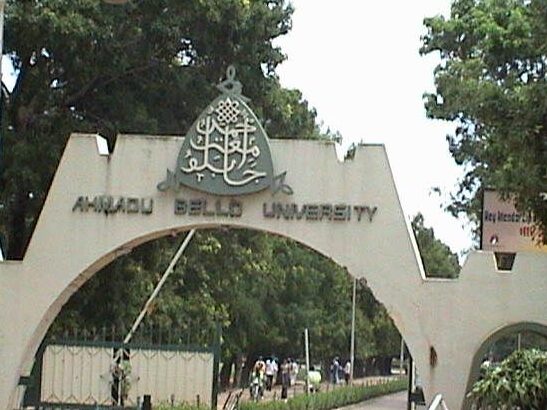
Much of his intellectual engagements were dedicated to the instrumentation of knowledge for re-engineering good social values to enhance a better and more productive future. It is by no coincidence that he lamented the declining conditions of the country’s educational system, which is clearly shown in the university system. He viewed every form of development associated with people as reflective of their standard in the educational system. He intoned that relative success, related to a community or a group of people, is actualized only when they have a solid and robust educational system. To that end, he encouraged people to conduct themselves according to the global best practices to combine their intellectual energies to create a university system that can prosper the nation.
Professor Mahadi called for a close union between the academic society and the government to produce a country of our dreams. It cannot be overemphasized that the usefulness of coming together is to generate ideas that would bring the system to a better condition. While recognizing that Nigeria has been achieving fundamental progress, he mentioned that such gains were due to struggles. Revealing his professional side as a trained historian, Mahadi contributed to conversations about migration and its uncanny beginning. While he accepted that many people sought better conditions elsewhere to drive migration, he argued that they could not escape the brutal politics that made migration inevitable.
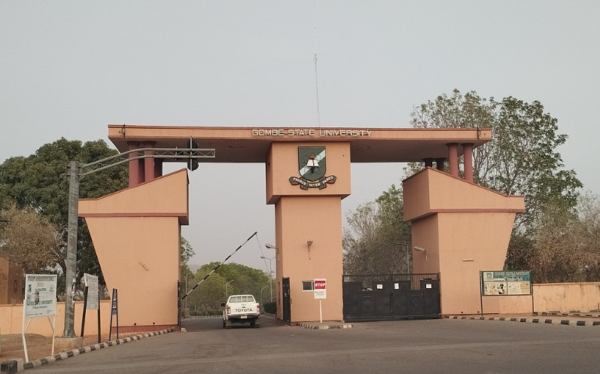
There is no better way to appreciate this intellectual enigma than the ways through which he was recognized at different levels and on various occasions. Many individuals succeeded under him because he saw cognitive improvements through the advice and mentoring made available by others. He was an integral part of our collective development. He remained critical in the organization of people and things in his world.
Mahadi served humanity in his leadership and mentoring capacity, which is reflected in numerous community services in which he participated. He anchored conversations geared towards actualizing human potential, and more than this, he was a solid asset for the people in the educational system across the world, for he achieved what was seen as impossible for people like him.
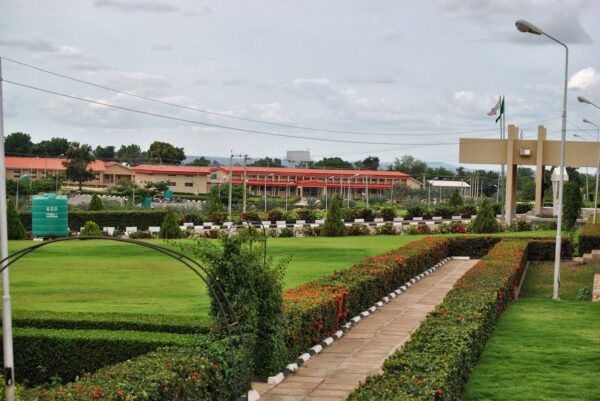
His legacy remains: He received various recognitions during his lifetime because his intellectual status was a product of dedication, firm commitment, and ethical uprightness. The annual lecture in his honor is a good reward for a life of service. I am privileged to have been his friend, and I will joyfully deliver the 2024 Memorial Lecture in person despite the long distance between Austin and Gombe via Lagos and Abuja.
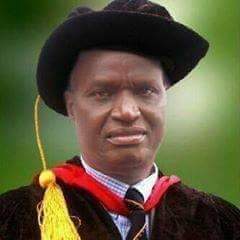
This is a true reflection of Professor Abdullahi Mahadi.
Prof. Abdullahi Mahdi was my VC at Gombe State University.
He was compassionate about the welfare both staff and students of the university. He’ll always be remembered.
I WILL ATTEND
Professor Mahdi he is a mentor to many and a philanthropist, a father to father less people.
Tall in physique, knowledge and ideas,
Prof Abdullahi Mahdi as ABU Zaria lecturer-a MENTOR
As V-C3x enthroned a culture of PRAGMATIC RENAISSANCE
His legacy: Integrity, Sacrifice & Selflessness.
Rest on, gentle giant
The best and incontestable V.C ever in the history of Gombe State University Rest In Peace sir
A very nice, humble and good natured VC I will ever remember as an undergraduate in ABU. He had that attitude that puts you at ease, and his love for nature and environment is unparalleled. ABU will never forget him. May his gentle soul rest in peace, ameen.
May Allah in his infinite mercy and wisdom forgive his shorts coming grants him jannatul firdaus as final aboard Amin yarabb
The international team, Africa, Nigeria, Northern Nigeria, the Northeast, Borno State, ABU, Gombe State Universities communities and Gwoza LGA, where he hailed from would continue to Honour and miss him. He was a great scholar, leader and mentor.
May his soul continue to rest in peace.
LDG BOKKO
Tall in physique, knowledge and ideas,
Prof Abdullahi Mahdi as ABU Zaria lecturer-a MENTOR
As V-C3x enthroned a culture of PRAGMATIC RENAISSANCE
His legacy: Integrity, Sacrifice & Selflessness.
Rest on, gentle giant
His mentorship and steadfastness are priceless. Wherever he is to be mentioned is a place to be. May his gentle soul rest in Jannatu firdaus, Ameen.